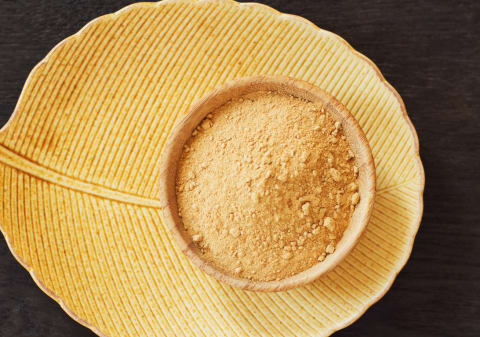Advertisement

If there’s one thing that women can all agree on, it’s that we all experience a lot of stress. Sure, everyone feels it differently, and it comes from various sources—like our packed schedules, our demanding jobs, our health, or our relationships—but we all deal with it in one form or another. Because of this, the way we learn to respond to and handle stress can often mean the difference between optimal health and a body and mind that seem to continually break down, oftentimes in the very moment we need them the most.
So how do we learn to adapt better to everyday stressors? A solid sleep schedule, time in nature, and a mindfulness practice are crucial, and adaptogens—a unique group of plants that work to create balance in the body—are also a great place to turn. Herbalists and integrative and functional medicine doctors praise their ability to help us "adapt" to all of the demands of modern life and stressors we encounter on a daily basis (we’re looking at you, standstill traffic).
Keeping the body in balance and having a healthy response to stress is important for everyone, but it’s especially important when it comes to women’s health. The hormonal fluctuations we experience throughout the month are delicate, and when they’re thrown out of sync by stress, it can majorly affect the way we feel. Luckily, there are a few specific adaptogens that are particularly beneficial for female balance:*
1. Maca

Lepidium meyenii is grown in the Andes region of South America and was used historically as an energy tonic.* It’s commonly used to support sexual health for both men and women, making it a great place to turn for a little extra support.* You can supplement with maca capsules or even mix it into your smoothies or matcha in powdered form!
2. Rhodiola
Rhodiola rosea is also known as "the golden root" and was used by the ancient Greeks as a healthy-supporting tonic.* It’s grown in the Alpine regions of Europe, Asia, and America and is thought to support stamina and help the body cope with the effects of stress.*
3. Ashwagandha
Ashwagandha, also known as Withania somnifera, is one of the most famous herbs used in ayurveda, the traditional medical system originating in India. In fact, it might just be the most famous adaptogen out there. Some scientific data shows that it may be able to support a healthy immune system, which is crucial in your ability to adapt to stress.* It’s the perfect herb to incorporate into your lifestyle during winter, which is when we’re more likely to come down with something, and the dreary weather can make us feel, well, a little bit dreary.
4. Holy basil
We’re learning more and more that when it comes to our energy levels, mood, weight, and overall health, blood sugar balance means a LOT. In other words, when our blood sugar is out of whack, it’s close to impossible to feel our best. Luckily, holy basil helps support healthy carbohydrate metabolism and normal glucose management.* This, combined with its powerful adaptogenic properties, gives us a little extra support in responding to life’s daily stressors.*
5. Eleuthero
Eleuthero root—also known as Eleutherococcus senticosus—is famous for its ability to enhance vitality, which is crucial when we have long to-do lists and not much time to complete them.*
Remember: Stressors are inevitable, and high levels of stress will come and go throughout life. What matters most are the tools we have in our back pocket (or in this case, our medicine cabinet) that can offer us some support.
If you’re feeling particularly taxed by the end of your days, adding one of these adaptogens to your wellness regimen might be just what you need to get back on track. Any one of these can be added to your morning smoothie or purchased in capsule or tincture form to bring a little extra balance to your day.
*These statements have not been evaluated by the Food and Drug Administration. These products are not intended to diagnose, treat, cure, or prevent any disease.
